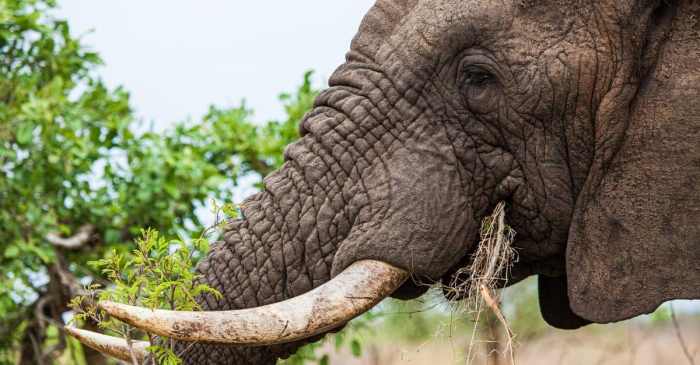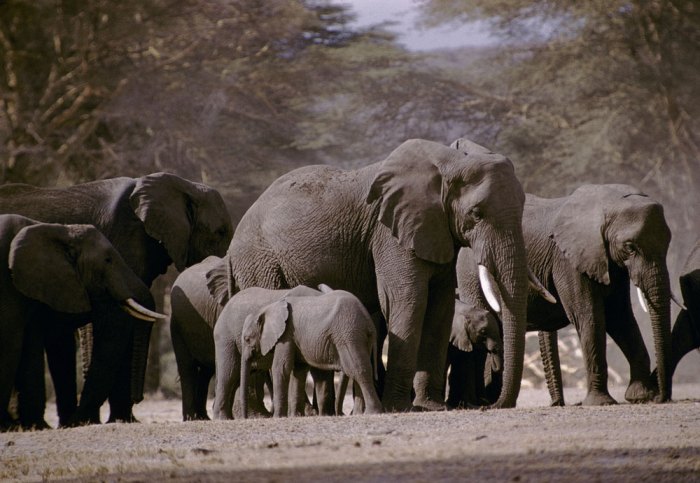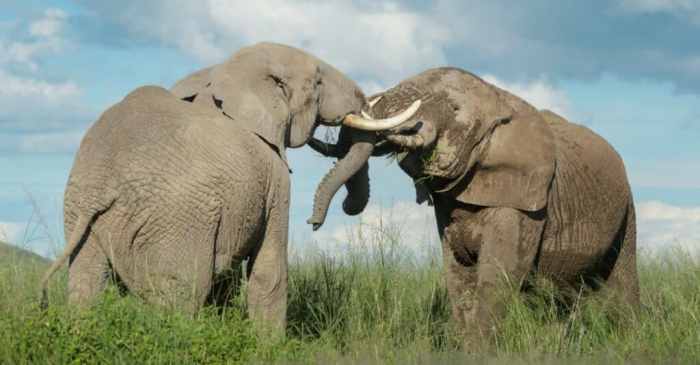Embarking on an exploration of why do elephants have ivory tusks answer key, this comprehensive guide delves into the biological significance, evolutionary origins, cultural importance, conservation challenges, and ethical concerns surrounding these remarkable structures.
Ivory tusks, a defining characteristic of elephants, serve a multitude of purposes, from foraging and social interactions to cultural and historical significance. Understanding their role in the lives of these majestic creatures is crucial for their conservation and well-being.
Biological Significance of Ivory Tusks

Elephant ivory tusks, composed primarily of dentin and hydroxyapatite, play a crucial role in their survival and well-being.
Feeding and Foraging
- Tusks are used to strip bark from trees, enabling elephants to access nutrients.
- They help elephants dig for water and minerals in dry environments.
Social Interactions, Why do elephants have ivory tusks answer key
- Tusks are used in courtship displays and dominance contests.
- They aid in defending against predators and resolving conflicts within the herd.
Elephant Survival
- Tusks provide structural support, enabling elephants to carry heavy objects and navigate rough terrain.
- They can be used as weapons for self-defense against predators.
Evolutionary Origins of Ivory Tusks

Ivory tusks evolved over millions of years as an adaptation to specific environmental pressures.
Selective Pressures
- Tusks provided an advantage in accessing food sources, especially in dense vegetation.
- They aided in defense against predators, as elephants with larger tusks were more likely to survive.
Genetic and Environmental Factors
- Genetic variations influenced tusk size and shape, with some populations exhibiting larger tusks.
- Environmental factors, such as diet and habitat, also played a role in tusk development.
Cultural and Historical Importance of Ivory
Ivory has held cultural and historical significance across various societies throughout history.
Art and Ornamentation
- Ivory has been used for centuries in the creation of sculptures, jewelry, and decorative objects.
- It was prized for its beauty, durability, and ability to take on intricate carvings.
Religious Practices
- Ivory has been used in religious ceremonies and rituals in many cultures.
- In some religions, ivory is considered sacred and associated with deities.
Impact on Elephants
- The demand for ivory has led to the illegal killing of elephants for their tusks.
- Ivory trade has contributed to the decline of elephant populations worldwide.
Conservation Challenges and Ethical Concerns: Why Do Elephants Have Ivory Tusks Answer Key

Ivory poaching and habitat loss pose significant threats to elephant populations.
Threats to Elephants
- Ivory poaching remains a major threat, driven by illegal wildlife trade.
- Habitat loss and fragmentation reduce access to food and water, impacting elephant survival.
Ethical Implications
- Ivory consumption raises ethical concerns about the well-being and conservation of elephants.
- International conventions, such as CITES, aim to protect elephants and regulate ivory trade.
Conservation Strategies
- Anti-poaching measures, including surveillance and law enforcement, are crucial for protecting elephants.
- Habitat conservation and restoration efforts aim to ensure the long-term survival of elephant populations.
Alternatives to Ivory
Sustainable and ethical alternatives to ivory are available for use in art, fashion, and other industries.
Examples of Alternatives
- Plant-based materials, such as bamboo and palm wood, can mimic the appearance and texture of ivory.
- Synthetic materials, such as acrylic and resin, provide durable and affordable alternatives.
Challenges and Opportunities
- Promoting alternative materials requires consumer awareness and demand.
- Investment in research and development is needed to improve the quality and availability of alternatives.
FAQ Insights
What is the composition of elephant ivory tusks?
Elephant ivory tusks are primarily composed of dentin, a calcified tissue similar to bone, and hydroxyapatite, a mineral that gives them their hardness and durability.
How do elephants use their tusks?
Elephants utilize their tusks for a variety of purposes, including digging for food and water, stripping bark from trees, manipulating objects, and defending themselves against predators.
Why are elephant tusks important for their survival?
Tusks play a crucial role in elephant survival by enabling them to access food and water, protect themselves from harm, and establish dominance within their social hierarchy.
What are the ethical concerns surrounding ivory consumption?
The demand for ivory has led to widespread poaching, decimating elephant populations and disrupting ecosystems. Ethical concerns arise from the suffering inflicted on elephants and the negative impact on their conservation status.